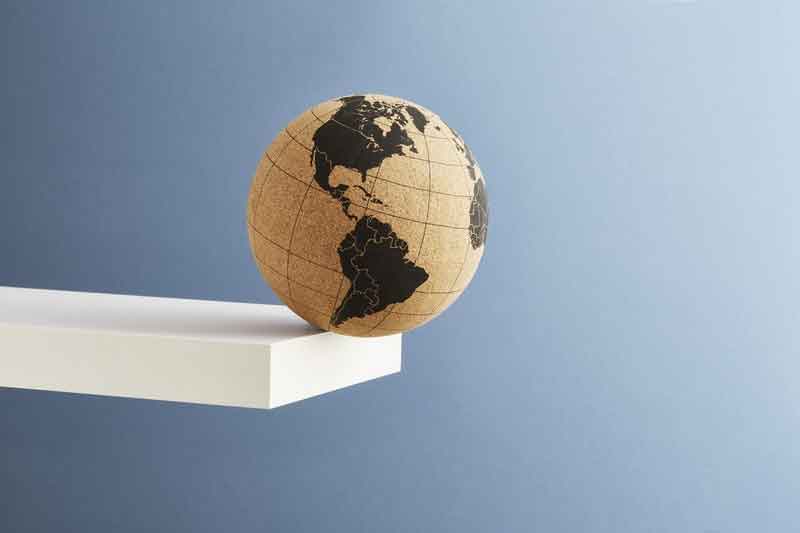
I suppose I could have titled this writing Applying Nonviolent Noncooperation to Pernicious Consumerism, or to Malignant Normalcy. Notwithstanding, here are my thoughts….
For as long as it remains profitable NOT to find or accept solutions to planetary problems, those who possess economic and political power will not allow solutions. Looked at from another side, it is the same as to say that most corporations and individuals operating within them will not accept alternatives that threaten their income and thereby their power. The threat must first be removed, replaced by a planned alternative, before cooperation begins to open the way to differences happening.
It is up to people to change this dynamic through nonviolent noncooperation. That when, because of public resistance and noncooperation, it becomes profitable to embrace and promote solutions, solutions will take place. And solutions will remain for the duration of public pressure and expectation. That is, for as long as alternatives by popular demand are sustained through public assertion.
This applies to changing the culture of violence, including the militarization of civic and domestic life, as well as to the environment. The method of nonviolent noncooperation (with its situational adaptations) applies equally to resisting and eliminating crimes against creation and crimes against humanity. These latter now extend to include hate crimes erupting out of race-based animosity, cumulative internal frustration, and politically projected fear.
Instead of continuing as deliberately misinformed and misdirected automatons, people of the world must come to realize that those for whom profit is power assert themselves in any direction where profit is most lucrative. This is the insidious adaptability of corporate capitalism, yet it can be subverted and used to advantage in pursuits of biotic and social justice.
A word of caution: do not seek to move toward the goals of justice through argument and counterargument alone. The rational composition of the modern mind has become a labyrinth filled with nonsense, confusion, and deliberate detours away from substance, with anxious, numbing dead-ends of propaganda and convenient, compromising, and thereby corrupting, deceptions. Genuine dialogue, a vital organ in nonviolent noncooperation, requires a common ground of life-support and the recognition of mutual vulnerability. But genuine empathy is denied by most of our dehumanizing contemporary argumentation. In America, the most common form of denial is to place cost before necessity and to use financial calculation to deny the afflictions and dangers of reality. Money is withheld from real needs while substantial sums are allotted for promoting falsified (floating world) versions of reality.
There is, however, a higher intuition of emotional intelligence (that which the philosopher Baruch Spinoza identified as essential to the third, most trustworthy, level of knowledge) and unfettered spontaneities respond before denial shuts down the “unprofitable” acts of beauty which open to do what is right for life because it is right to do so. With empathy the felt-consciousness and felt-conscientiousness of a shared condition enters discourse. With both self-realization and empathetic expansion change becomes a desired possibility. It is vital in working on transformations to reach the experience of trust. Trust is most accessible, undeniable, in the presence of what we call soul and which Spinoza calls the intuition of higher knowing.
Through teach-ins, sit-ins, boycotts and strikes, and while maintaining a constant level of integral awareness, nonviolent noncooperation can be applied across the whole spectrum of global consumerism, changing mindset and culture, preventing ecocide and cultural as well as demographic genocide, early on, even as their intentional inception. Such events and acts of democratic will are empowering and can establish the bilateral terms of future expectations. Two examples come to mind, first the famous Salt March Gandhi organized in South Africa and secondly the most recent decision by Toyota to stop post-election donations to Donald Trump because enough people, learning of corporate support, refused to buy the company’s automobiles.
My own favorite formula for democratizing popular metamorphic advancement is proceeding from a solitude of awakening (finding and cultivating individual spiritual enrichment and appropriateness) to a solidarity (a union) of commitment. Nonviolent noncooperation is itself a mode of commitment from out of which varieties of commitments can root and grow in societal value. The future of our species and the habitability of our planetary home may well depend on persons who have fallen in love outwardly, are externally engaged and internally resourceful enough to begin (again) in making response-ability a norm and a shared identification/identity embrace. That for us, embedded in the current crisis-syndrome of Earth and Humanity, is the updated ability to accept in ardent affirmation, “I am that.”
Norwegian ecosopher Arne Naess, himself devoted to Gandhian nonviolent noncooperation, taught that we love what we identify with, identifying deep enough into our personhood to extend self-realization beyond the facile boundaries of skin and ego. Arnie says, “We care for what we love and love what we care for.”
David Sparenberg is a teacher of existential-ecosophy, an eco-poet and author of the forthcoming book CONFRONTING the CRISIS, Essays and Meditations on Eco-Spirituality, a title in the new Earth Spirit Series from Moon Books, UK.
















































